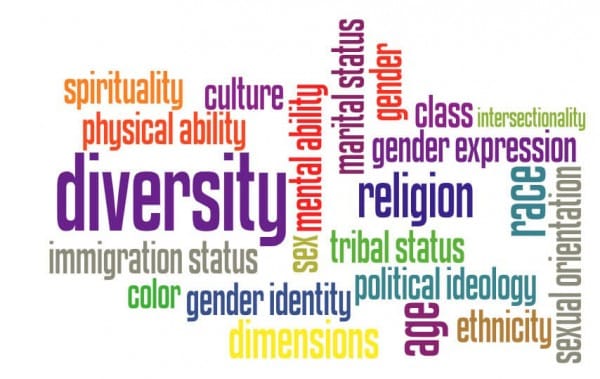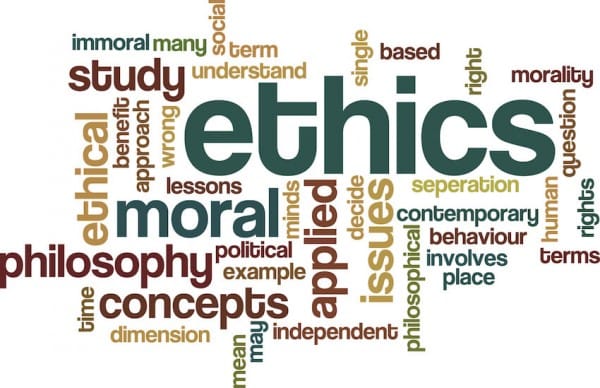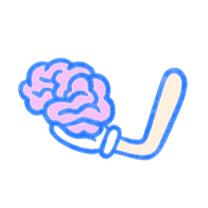*This post has been updated to reflect the 2018 ASWB LCSW exam blueprint changes.
The ASWB LCSW (Association of Social Work Boards Licensed Clinical Social Worker) exam is used as a licensing evaluation across the United States, in two Canadian provinces, and in the U.S. Virgin Islands. The ASWB LCSW is one of four licensing exams administered by ASWB. Unlike the ASWB BSW and ASWB MSW, which are usually taken by recent graduates of social work programs, the ASWB LCSW is typically taken by social workers who are in the process of completing a supervised practicum in a mental health/clinical work context. As a result, the questions on the ASWB LCSW exam focus specifically on mental health/clinical practice issues.
The ASWB LCSW is comprised of 170 multiple-choice questions, and each question consists of four options. Questions aim to test competencies in four key areas of mental health/clinical knowledge and practice:
• I. Human Development, Diversity, and Behavior in the Environment (24%)
• II. Assessment, Diagnosis and Treatment Planning (30%)
• III. Psychotherapy, Clinical Interventions and Case Management (27%)
• IV. Professional Ethics and Values (19%)
Although there are 170 questions on the exam, only 150 are scored; the other 20 questions are included as “pretest” questions, which may appear on future exams. Since test takers have no way of distinguishing the “pretest” questions from the real thing, it is critical to respond to every question assuming it will count.
The ASWB LCSW must be completed at a Pearson VUE testing center where you’ll be given 4 hours to complete the exam. Taking a timed practice exam online prior to taking the actual exam is highly recommended. For candidates who have already taken the ASWB BSW and/or ASWB MSW, there may be some overlap (e.g., the format of the exam) but the content will vary considerably from these other exams. Below we outline the key content areas covered on the exam and provide tips on how to prepare.

Content Area I. Human Development, Diversity, and Behavior in the Environment
This section will test your knowledge of human development, diversity, and social behaviors. An understanding of the basic tenets of social psychology and familiarity with theories of identity, power and oppression will help you ace this part of the exam.
IA. Human Growth and Development
On this part of the exam, expect to encounter questions that test your knowledge of theories of human growth and development, personality theories, and the process of social development, as well as topics concerned with different parts of the human life cycle (e.g., gerontology, child development, adolescent development, human genetics, the family life cycle and parenting skills).
IB. Human Behavior in the Social Environment
On this section of the exam you’ll encounter questions about human behavior on a range of topics including but not limited to:
• The Person in Environment (PIE) theory
• Theories of human behavior
• Psychological defense mechanisms
• Normal and abnormal behavior
• The effects of social context on behavior
• The dynamics of sexual abuse
• The dynamics of psychological abuse and neglect
• The dynamics of physical abuse and neglect
• The impact of mental illness on family dynamics
• The effects of trauma on behavior
• The effects of trauma on self-image
IC. Diversity and Discrimination
To prepare for this section, ensure you are familiar with theories of identity and theories on power and oppression. Specific questions may include those related to the following topics:
• Differences in culture, race, and ethnicity
• The influences of culture, race, and/or ethnicity
• The impact of culture, race, and/or ethnicity on self-image
• The effects of discrimination based on culture, race, and/or ethnicity
• Differences in sexual orientation and/or gender
• The influences of sexual orientation and/or gender
• The impact of sexual orientation and/or gender on self-image
• The effects of discrimination based on sexual orientation and/or gender
• Differences in age and/or disability factors and characteristics
• The influences of age and/or disability
• The impact of age and/or disability on self-image
• The effects of discrimination based on age and/or disability
• The impact of diversity on styles of communicating
• The effects of spirituality
Content Area II. Assessment, Diagnosis and Treatment Planning
The second most heavily weighted section of the ASWB LCSW tests your knowledge of approaches to assessment and diagnosis, as well treatment planning. The section is divided into the three subsections.
IIA. Biopsychosocial History and Collateral Data
• The components of a biopsychosocial assessment
• Techniques and instruments used to assess clients/client systems
• The types of information available from other sources (e.g., agency, employment,
medical, psychological, legal, or school records)
• Methods to obtain sensitive information (e.g., substance abuse, sexual abuse)
• The principles of active listening and observation
• The indicators of sexual dysfunction
• Symptoms of neurologic and organic disorders
IIB. Assessment and Diagnosis
In the Assessment and Diagnosis section, be prepared to respond to questions that test your knowledge of the DSM-5 (the 5th edition of the Diagnostic and Statistical Manual of the American Psychiatric Association) and myriad of related topics that may include:
• The factors and processes used in problem formulation
• The methods used to assess the client’s communication skills
• The use of observation
• The methods used to assess a client’s strengths and weaknesses
• The indicators of motivation and resistance
• The factors used in determining the client’s ability to use intervention/treatment
• Psychopathology
• Medications
• The process of social work assessment/diagnosis
• The methods used in assessing clients’ ego strengths
• The current Diagnostic and Statistical Manual of the American Psychiatric Association
• Basic medical terminology
• The biopsychosocial factors related to mental health
• Risk factors for dangerousness to self and others
• Risk factors related to suicide
IIC. Treatment Planning
The final section of the second content area focuses on treatment planning. Be prepared to respond to questions on the following topics:
• The criteria used in selecting intervention/treatment modalities
• The components of intervention, treatment, or service plans
• The methods used to match interventions to client problems
• The methods used to develop an intervention/treatment plan
• Discharge, aftercare, and follow-up planning
• The use of measurable objectives in intervention, treatment, or service plans
• The difference between objective and subjective data
• The application of research to practice
• The methods used to formulate a timeframe for interventions
III. Psychotherapy, Clinical Interventions and Case Management
Naturally, a key part of the ASWB LCSW aims to test your knowledge of actual intervention practices. To ace this section, you’ll need to have a strong grasp of counselor/client relationships, intervention models, and case management issues. You’ll also be expected to demonstrate knowledge of when and how to refer clients to colleagues working in allied fields (e.g., medicine or psychiatry).
IIIA. Therapeutic Relationship
This section primarily focuses on the dynamics of the therapeutic relationship and advised protocols for counselor/client interactions. Among other topics, prepare to respond to questions on the following:
• The concept of feedback
• The concept of congruence in communication
• The methods used in summarizing communication
• The methods used to facilitate communication
• Verbal and nonverbal communication techniques
• The methods for feedback
• The concept of empathy
• The social worker-client relationship
• Methods to clarify the role of the social worker
• Techniques to clarify client responsibilities
• Concepts of transference and counter-transference
IIIB. The Intervention Process
Another key section of the exam will focus on intervention processes or models or approaches to working with clients. While some of these interventions are derived from psychotherapy, others focus on life skills and prevention. Among other topics, prepare to respond to questions on the following:
• Biopsychosocial models
• The problem-solving model
• Crisis intervention/treatment approaches
• Psychodynamic approaches
• Behavioral approaches
• Psychotherapies
• Solution-focused and brief interventions
• Empowerment strategies in interventions
• Prevention strategies
• The techniques to teach coping and other skills to clients
• Techniques for stress management
• Techniques for anger management
• Techniques for harm reduction
• The approaches to social group work
IIIC. Service Delivery and Management of Cases
Another subsection presents questions concerned with case management techniques (e.g., case recording for practice evaluation or supervision; methods for performance appraisal and evaluation; and the concept of client advocacy).
IIID. Consultation and Interdisciplinary Collaboration
The final section of the third content area will present questions concerning consultation and collaboration with other professionals (e.g., how to work with care teams comprised of medical or criminal justice experts; how and when to consult people in other fields; and how to make referrals to other professionals and agencies).

Content Area IV. Professional Ethics and Values
The final section, worth 19% of the total exam, focuses on professional ethics and values. The section covers three primary areas of knowledge:
IA. Professional Values and Ethical Issues:
• Legal and/or ethical issues related to the practice of social work, including responsibility to clients/client systems, colleagues, the profession, and society
• Techniques to identify and resolve ethical dilemmas
• The client’s/client system’s right to refuse services (e.g., medication, medical treatment, counseling, placement, etc.)
• Professional boundaries in the social worker-client/client system relationship (e.g., power differences, conflicts of interest, etc.)
• Ethical issues related to dual relationships
• Self-disclosure principles and applications
• The principles and processes of obtaining informed consent
• Legal and/or ethical issues regarding documentation
• Legal and/or ethical issues regarding termination
• Legal and/or ethical issues related to death and dying
• Research ethics (e.g., institutional review boards, use of human subjects, informed consent)
• Ethical issues in supervision and management
• Methods to create, implement, and evaluate policies and procedures for social worker safety
IB. Confidentiality:
• The use of client/client system records
• Legal and/or ethical issues regarding confidentiality, including electronic information security
• Legal and/or ethical issues regarding mandatory reporting (e.g., abuse, threat of harm, impaired professionals, etc.)
IC. Professional Development and Use of Self:
• Professional values and principles (e.g., competence, social justice, integrity, and dignity and worth of the person)
• Professional objectivity in the social worker-client/client system relationship
• Techniques for protecting and enhancing client/client system self-determination
• Client/client system competence and self-determination (e.g., financial decisions,
treatment decisions, emancipation, age of consent, permanency planning)
• The influence of the social worker’s own values and beliefs on the social worker-client/client system relationship
• The influence of the social worker’s own values and beliefs on interdisciplinary collaboration
• The impact of transference and countertransference in the social worker-client/client system relationship
• The impact of transference and countertransference within supervisory relationships
• The components of a safe and positive work environment
• Social worker self-care principles and techniques
• Burnout, secondary trauma, and compassion fatigue
• Evidence-based practice
• Professional development activities to improve practice and maintain current professional knowledge (e.g., in-service training, licensing requirements, reviews of literature, workshops)
Due to the complexity of the exam, you should plan to study for the ASWB LCSW for at least three months. Try out Pocket Prep’s ASWB LCSW exam prep app!

